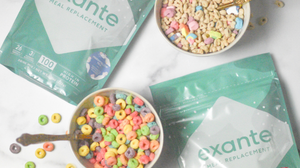
Menopause is a crucial stage in any woman’s life, and it is important to understand the signs and symptoms whilst learning how to manage it. Read this blog for a quick guide on menopause including what it is, the symptoms and nutrition to help support your symptoms of the menopause.
What is menopause?
Menopause is the stage that marks the end of a menstrual cycle. It is often associated with symptoms and signs including hot flashes, period changes and mood swings. It commonly affects women between the ages of 45-55 but can sometimes happen earlier or later.
What are the signs and symptoms of menopause?
Due to the changes in hormone levels, menopause is associated with a variety of signs and symptoms including:
Changes to your period:
The changes in hormone levels can lead to changes in your menstrual cycle, which leads to infrequent and irregular periods, until they stop all together.
Mood swings and mental health symptoms:
Also associated with menopause and the changes in hormone levels, many people experience mood swings and mental health symptoms whilst menopausing, including low mood, low self-esteem and brain fog or memory problems.
Hot Flashes:
This occurs when you have sudden feelings of hot or cold in your face or neck, which can lead to dizziness.
Reduced sex drive
Muscle aches and joint pains
Difficulty losing weight and bloating
Nutrition and the menopause:
Menopause is often associated with nutrient deficiencies including calcium, magnesium, zinc and vitamin D. It is important to consume foods rich in nutrients and minerals to avoid any deficiency related symptoms and to help ease physical symptoms.
Looking for a way to reach your weight loss goals whilst maintaining your nutrient targets?
Look no further! Our meal replacement shakes are the perfect addition to your diet* , not only do they help you reach your weight loss goals, but they are also packed with 26 vitamins and minerals, which make reaching your health goals attainable too!
Possible treatments for the menopause:
Hormone replacement therapy (HRT):
Hormone replacement therapy involves using estrogen to replace your body's own levels around the time of the menopause. If you have a uterus, you will also need to take progesterone to replace your uterus’ lining from the effects of estrogen.
Non-hormone medicines:
These include non-hormonal medications prescribed by your GP if you cannot or choose not to have HRT.
Have a question? We’re all ears!
Drop all your questions on our social media and follow us to stay updated with exante news!
*Please consult a doctor if you have a medical condition and are looking to change your diet.

Related Articles








